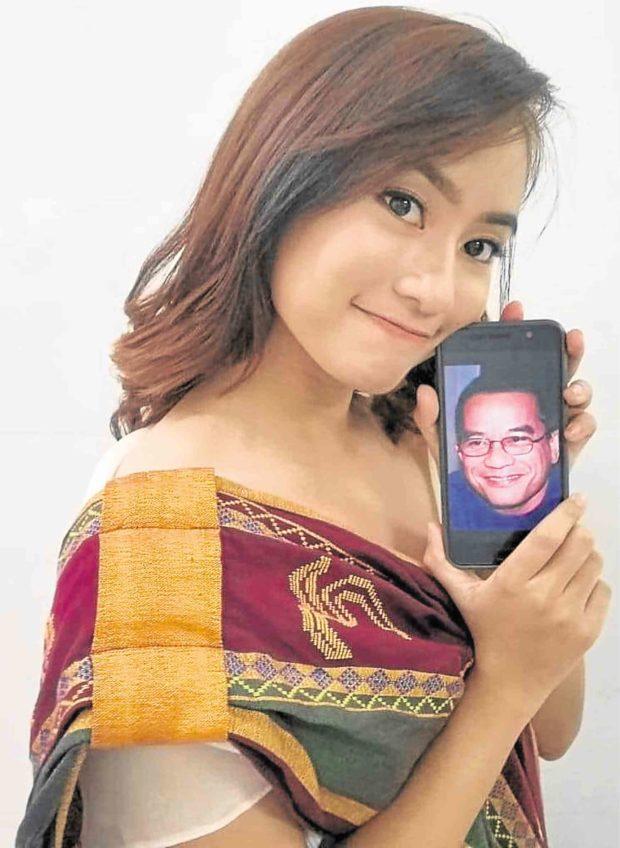
FATHER’S PRIDE Gabrielle Thea Ramos wishes her father, slain human rights lawyer Benjamin Ramos Jr., could have attended her graduation at the University of the Philippines Visayas.
ILOILO CITY, Iloilo, Philippines — Gabrielle Thea Ramos was happy and sad as she donned on Thursday the “sablay,” the loose garment in green and maroon worn over formal clothes by graduating students of the University of the Philippines (UP).
As the eldest of three siblings, she was the first to graduate in college with a biology degree from UP Visayas (UPV) in Miag-ao town, Iloilo province.
Her father, lawyer Benjamin Ramos Jr., who had convinced her to enroll in UP, was not there to see her receive her diploma.
A gunman shot dead the 56-year-old Ramos on Nov. 6, 2018, in front of a convenience store in Kabankalan City in Negros Occidental province.
Although her mother, Clarissa, and her 19-year-old sister were with her, she wished that her father had seen her march along with the 824 graduates of the Iloilo City and Miag-ao campuses during UPV’s 40th commencement exercises.
“He said he was going to buy a new barong Tagalog (formal wear) just for my graduation,” Gabrielle, 21, told the Inquirer.
Ramos was among the 66 victims of extrajudicial killings (EJKs) on Negros Island since President Duterte came into office on June 30, 2016, according to the Defend Negros solidarity network.
No arrests had been made nearly seven months after he was killed but his family and colleagues believed he was killed due to his advocacies and the cases he handled.
Ramos founded the nongovernmental organization Paghida-et sa Kauswagan Development Group. He was also founding member of the National Union of Peoples’ Lawyers.
He offered legal services for free to farmers, mostly in agrarian reform cases and victims of human rights violations.
Gabrielle said her father was instrumental in her enrolling in UPV.
“Tatay wanted me to study in UP because he believed the university will help me become more aware of social realities. He did not push me on what course to take but urged me to give back to the masa who are paying for my education,” she said.
Big blow
Her father’s murder during the last weeks of her last semester was a big blow to Gabrielle.
“Since we were children, he made us aware of the risks in his work and that he could be killed. He sort of prepared us but I was still shocked and numbed,” she said.
She had to be absent from classes for two weeks to go home for the wake and burial. But she said her family, friends and those who cared for her father and their family helped her recover and not lose sight of her graduation.
She recalled being approached by a client of her father during the wake. “He told me to finish my studies so I can also serve the people like Tatay,” she said.
Gabrielle is set to pursue a medical course and plans to become a doctor serving rural communities.